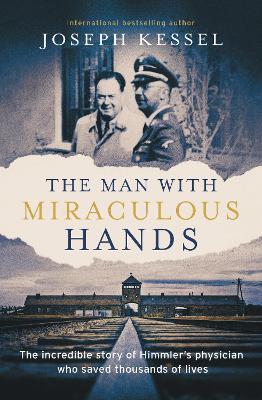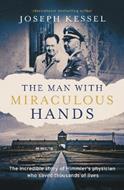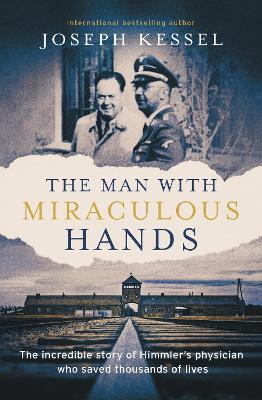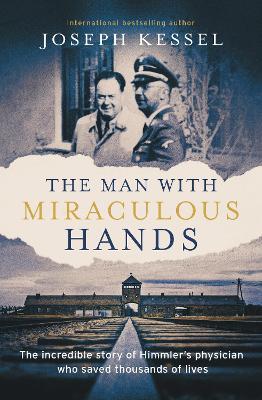The Man with Miraculous Hands: The Incredible Story of Himmler’s Physician Who Saved Thousands of Lives
The incredible story of Heinrich Himmler’s physician who saved thousands of lives. With a new introduction by bestselling author Norman Ohler, which addresses Kersten’s flawed legacy. In 1938, before the outbreak of the Second World War, Dr Felix Kersten an avuncular Finnish physician was introduced to Heinrich Himmler, the chief architect of the Holocaust. Seemingly the only person who could cure Himmler of his crippling stomach cramps, Kersten worked on Himmler’s vanity and gratitude Kersten to save the lives of thousands of people, and was celebrated across Europe, culminating in Joseph Kessel’s 1961 bestseller, The Man with Miraculous Hands. And yet, Kersten’s historical legacy is not flawless, and a new introduction by bestselling author Norman Ohler, deals with the historical legacy of Kersten’s more exaggerated claims, and asks directly why a man who had done so much good would risk damaging that reputation. Soon to be a major motion picture starring Woody Harrelson, The Man with Miraculous Hands is an extraordinarily revealing portrayal of the deranged atmosphere in Himmler’s court where paranoia and vicious rivalries reigned. Shedding a new light on the darkest days of the twentieth century, the story of Kersten’s life gives us a new way of viewing the history of the Second World War, one that goes beyond the simple idea of heroes and villains.
-
Autore:
-
Editore:
-
Anno:2023
-
Rilegatura:Hardback
-
Pagine:224 p.
Le schede prodotto sono aggiornate in conformità al Regolamento UE 988/2023. Laddove ci fossero taluni dati non disponibili per ragioni indipendenti da Feltrinelli, vi informiamo che stiamo compiendo ogni ragionevole sforzo per inserirli. Vi invitiamo a controllare periodicamente il sito www.lafeltrinelli.it per eventuali novità e aggiornamenti.
Per le vendite di prodotti da terze parti, ciascun venditore si assume la piena e diretta responsabilità per la commercializzazione del prodotto e per la sua conformità al Regolamento UE 988/2023, nonché alle normative nazionali ed europee vigenti.
Per informazioni sulla sicurezza dei prodotti, contattare productsafety@feltrinelli.it




